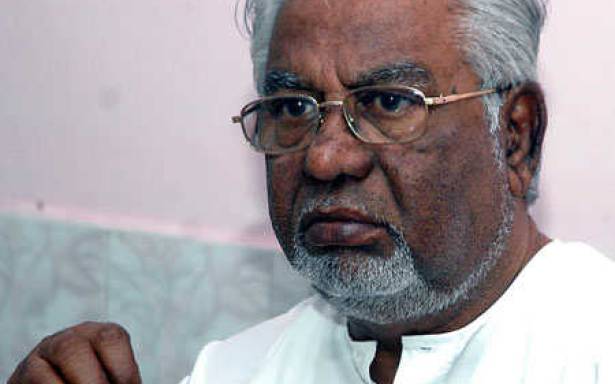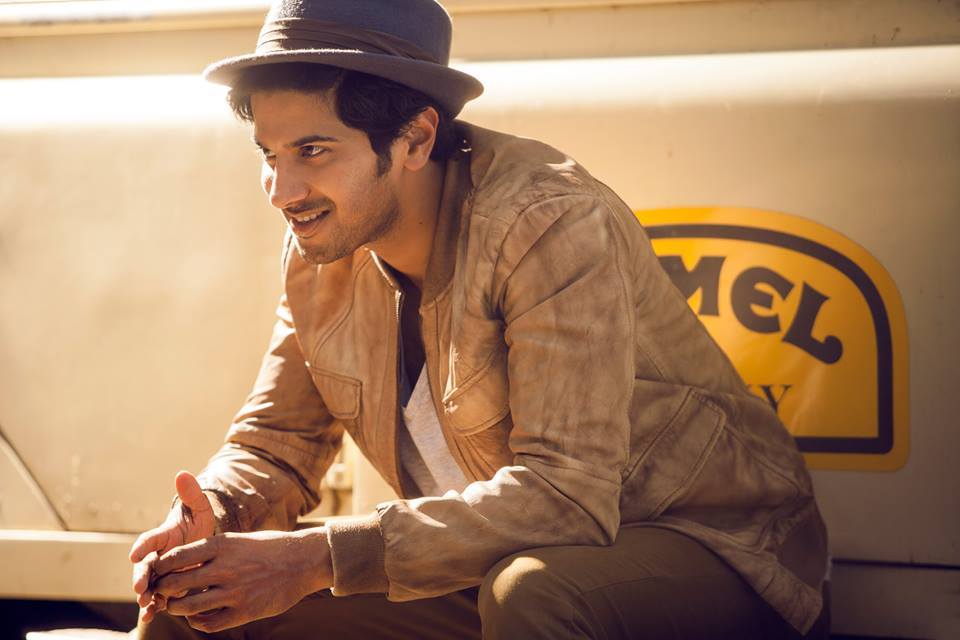Tamil poet and Sahitya Akademi award winner Abdul Rahman, popularly known by his honorific title ‘Kavikko’ (King of Poets), passed away on June 2. He was one of the leading poets associated with the ‘Vanampaadi’ (Skylark) movement of Tamil poetry, popular in 1970s and 80s.
Abdul Rahman was born near Madurai on November 9, 1937. His father used to write Urdu poetry, and naturally, the son too followed in his father’s footsteps. Abdul Rahman wrote his first Tamil poem at the age of nine and never looked back. After schooling in Madurai, he did his MA in Tamil at Thiagarajar Arts College. Leading Tamil scholars of that era – Avvai Duraisami Pillai, A.Ki. Paranthamanar, Ma. Rasamanikkanar – were his teachers in college. Later, he obtained a Ph.D in “Symbolism in New Tamil Poetry” under the guidance of Dr SV Subramanian in Madras University.
Abdul Rahman started his academic career in the Tamil department of Islamiah College, Vaniyambadi, where he worked for 29 years before retiring as the Head of the Department. Though he initially wrote verse in traditional format, he soon switched to free verse, influenced by Rumi and Khalil Gibran.
Abdul Rahman was a polyglot who could read Tamil, English, Urdu, Hindi, Persian and a bit of Sanskrit.
*****
Tamil poetry has a rich tradition dating back to the 3rd century BC. The rules of poetry are well-defined and rigorously followed. In the 20th century, Mahakavi Bharathi, and other Tamil poets, began breaking out of the mould and dabbled in free verse. By 1960s, Tamil free verse became the dominant form of poetry and was called ‘Pudhu Kavidhai’ (‘new poetry’) by literary critic Ka. Na. Subramanian.
Two literary magazines – ‘Ezhuthu’ (Writing) and ‘Vanampaadi’ (Skylark) – became the flag-bearers of the free verse movement. The ‘Vanampaadi’ poets wrote about social issues and were loud in their poetry. For them, the issues were more important than the aesthetics of poetry. The ‘Ezhuthu’ poets, though, were on the other end of the spectrum, considering aesthetics the supreme achievement of a poem.
Abdul Rahman aligned himself with the ‘Vanampaadi’ movement, and his first experimental poetry collection, ‘Paal Veedhi’ (Milky Way) was a sensation when published in 1974. Rahman also trod his own path. His verse was influenced by Sufi poetry and spoke intimately to the reader. He popularised ‘Haiku’ and Ghazal poems in Tamil poetry. His poems are known for their wordplay and brevity.
On an early night
after the rains,
a school of moths
enter the room
through a window,
crowd the light,
lose their wings
and fall down dead.
Cursing them,
we sweep
the dead bodies
and broken wings
away,
and yearning
for some darkness
we enter
through some window
to lose
our wings.
மழை ஓய்ந்த
முன்னிரவில்
சாளரத்தின் வழியே
அறையில் புகுந்து
மின் விளக்கை
மொய்த்து
முட்டி மோதி
சிறகுகள் உதிர்த்து விழும்
ஈசல் கூட்டம
காலையில்
திட்டியபடியே
செத்த உடல்களோடு
சிறகுகள் கூட்டிக்
குப்பையில் எறிந்து –
ஏதோ இருளை
மோகித்து
ஏதோ சாளர வழியே
நுழைந்து
சிறகுகள்
உதிர்க்கப் போவோம்
நாம்.
**
It was through your eyes
that I saw myself
for the first time
உன் கண்களால்தான்
நான் முதன் முதலாக
என்னைப் பார்த்தேன்.
*****
A close friend of the DMK leader and former Chief Minister M Karunanidhi, Abdul Rahman was a regular fixture in poetry sessions conducted by the DMK. Some of his poems in these sessions bordered on hagiography.
In 1999, Abdul Rahman was conferred the Sahitya Akademi Award for his poetry collection ‘Alapanai’. His influence as a poet, though, waned in later decades, as his poetry began sounding jaded and repetitive.
*****
Recommended
Rahman also received many requests to write lyrics for movies, but he didn’t want to bend his poetry to the tunes of music directors. He’s known to have famously quipped: “Why do you need a sculptor to chip stones?” (அம்மி கொத்த சிற்பி எதற்கு?).
Poet-lyricist Vairamuthu had then responded with, “A sculptor should also know to chip stones.”
Abdul Rahman was finally handed a movie – with complete lyrical freedom, just as he’d wanted.
It got shelved.
*****
Pic: The Hindu
Chenthil Nathan is a literary enthusiast, currently engaged in translating Classical Tamil Poetry at Old Tamil Poetry. In real life he is a truck fleet owner.



